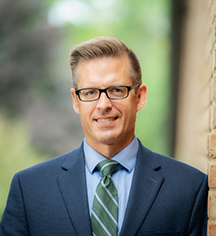In the seventh century, the theologian John of Damascus used a term to describe the life of the Trinity that has important resonance for today’s church in mission: perichoresis. Perichoresis means “whirl,” “rotation,” “encircling,” “embracing,” or “circulation around the neighborhood.” In the ancient world, it was used to describe the passing of wine around the table at a dinner party, or the movement of people around the environment or an open space.
In describing the Trinity, it suggests a dynamic, open, interpenetration of personhood and shared life, a mutual indwelling and participation. The identities of Father, Son, and Spirit are relationally defined and mutually interdependent. You cannot understand them apart from one another. What is most striking is the spaciousness of the divine community, which makes room in love for others to share in the feast. It is in the very nature of God’s triune life to generate others to share in communion, fellowship, or life-giving, reconciled community. God is not alone in God’s own life; and God’s desire is that all creation be united in love.
What does it mean for the missional church to live perichoretically — both within the triune God’s dynamic movement of love and relationality, and in relationship to its neighbors? Such an open, communal view of God would challenge visions of the church as a closed society or club with no room for the stranger. It would invite us to join God’s own movement within the community around us, in the lives of our neighbors. It suggests a church profoundly open — vulnerable even — for engagement with the world in compassion, as God’s triune community is open for us. This is most pointedly revealed in the Crucified One.
Sometimes, at a dinner party, or more profoundly, in the Eucharist, there is a sense of fellowship, sharing, and communion that develops that lifts us beyond ourselves and gives us a taste of the heavenly banquet. This is God’s promised future for us. Perichoresis is an invitation to receive that gift of communion, that participation in God’s loving relationality, and to extend it to strangers as the Spirit turns strangers into friends.

